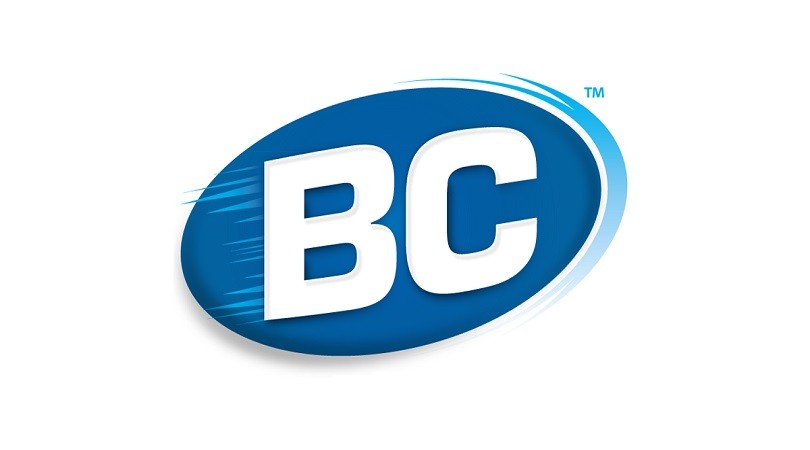Last Updated on January 6, 2025
Yes, you can eat feta cheese while pregnant, as long as it is made from pasteurized milk. Feta cheese made from unpasteurized milk can pose a risk of foodborne illness.
During pregnancy, it is essential to make healthy food choices to provide proper nutrition for both the mother and the developing baby. Feta cheese is a popular cheese made from sheep’s or goat’s milk that adds a tangy flavor to various dishes.
However, it is crucial to ensure that the feta cheese you consume is made from pasteurized milk. Pasteurization is a process that involves heating the milk to kill harmful bacteria and pathogens. Most commercially produced feta cheese is made from pasteurized milk, which reduces the risk of foodborne illnesses such as Listeria or E. Coli. If the feta cheese packaging does not specifically state that it is made from pasteurized milk, it is best to avoid consuming it during pregnancy. It is always recommended to check the labels or ask the cheesemaker or store staff to ensure the safety of the cheese. Including feta cheese in a balanced diet can provide essential nutrients like calcium and protein. However, pregnant women should consume it in moderation, as excessive intake may contribute to high sodium levels.

Feta Cheese Safety During Pregnancy
Feta cheese can be safely consumed during pregnancy if it is made from pasteurized milk. Pasteurization helps eliminate harmful bacteria that can pose a risk to the baby. However, it is crucial to check the label and ensure the cheese is pasteurized before indulging.
Feta cheese is a popular ingredient in various dishes, but many pregnant women wonder if it is safe to consume during pregnancy. The good news is that feta cheese can be safely consumed during pregnancy as long as certain precautions are taken.
In this section, we will discuss the risks of consuming unpasteurized feta cheese, the importance of checking labels for pasteurized feta cheese, and guidelines for storing feta cheese to prevent bacterial growth.
Risks Of Consuming Unpasteurized Feta Cheese
Unpasteurized feta cheese poses several risks to pregnant women due to the potential presence of harmful bacteria such as Listeria monocytogenes. This bacterium can cause a foodborne illness called listeriosis, which can have serious consequences for both the mother and the baby.
Some of the risks associated with consuming unpasteurized feta cheese during pregnancy include:
- Increased risk of miscarriage or stillbirth.
- Premature birth or low birth weight.
- Developmental issues or birth defects in the baby.
- Maternal health complications such as fever, muscle aches, and flu-like symptoms.
To protect yourself and your baby, it is crucial to avoid consuming unpasteurized feta cheese during pregnancy. Always check the label to ensure that the feta cheese has been pasteurized.
Importance Of Checking Labels For Pasteurized Feta Cheese
Pasteurized feta cheese is safe to consume during pregnancy because the pasteurization process eliminates harmful bacteria. When purchasing feta cheese, it is essential to check the label for the “pasteurized” statement. Here’s why it is crucial to prioritize pasteurized feta cheese:
- Pasteurized feta cheese undergoes heat treatment that kills bacteria like Listeria monocytogenes, ensuring it is safe for consumption.
- Choosing pasteurized feta cheese reduces the risk of listeriosis and other foodborne illnesses that can harm you and your baby.
- By checking labels for pasteurized feta cheese, you can make informed decisions about the products you consume, promoting healthier pregnancy outcomes.
Guidelines For Storing Feta Cheese To Prevent Bacterial Growth
Proper storage of feta cheese is vital to prevent bacterial growth and maintain its safety. Follow these guidelines to ensure that your feta cheese stays fresh and free from harmful bacteria:
- Keep feta cheese refrigerated at a temperature below 40°F (4°C) to inhibit bacterial growth.
- Store feta cheese in an airtight container or its original packaging to prevent cross-contamination with other foods.
- Avoid placing feta cheese near raw meats or juices, as this can increase the risk of bacterial contamination.
- Consume the feta cheese within the recommended time frame indicated on the packaging to minimize the risk of consuming spoiled or bacteria-infected cheese.
By following these storage guidelines, you can enjoy feta cheese safely throughout your pregnancy, knowing that you have minimized the risks of bacterial contamination.
Remember, when it comes to feta cheese consumption during pregnancy, it is crucial to prioritize pasteurized options and practice proper storage techniques to ensure the health and safety of both you and your baby.

Nutritional Benefits Of Feta Cheese For Pregnant Women
Feta cheese is safe to eat during pregnancy and offers several nutritional benefits. Packed with calcium, protein, and vitamins, this versatile cheese can support the healthy development of both the mother and the baby. Remember to consume it in moderation to reap the benefits while avoiding excessive sodium intake.
Feta cheese is a popular type of cheese that is loved for its tangy and salty flavor. But if you’re pregnant, you might be wondering if it’s safe to indulge in this delicious cheese. The good news is that feta cheese can be enjoyed during pregnancy, with a few important considerations.
In this section, we will explore the nutritional benefits of feta cheese for pregnant women and understand why it can be a healthy addition to your diet during this special time.
Essential Nutrients Found In Feta Cheese:
- Calcium: Feta cheese is a rich source of calcium, which is crucial for supporting healthy bone development in both the mother and the baby. Adequate calcium intake during pregnancy can help prevent conditions like osteoporosis and also contribute to the proper formation of the baby’s bones and teeth.
- Protein: Feta cheese is also a good source of protein, which is essential for fetal growth and development. Protein helps in the formation of the baby’s organs, muscles, and tissues. It also plays a vital role in the production of enzymes and hormones that are necessary for a healthy pregnancy.
- Vitamins: Feta cheese contains various vitamins, including vitamin B12, which is essential for the formation of red blood cells and the development of the baby’s nervous system. It also provides small amounts of vitamins A and D, which are important for immune function, vision, and bone health.
Role Of Calcium In Supporting Healthy Bone Development:
- Calcium is a vital nutrient during pregnancy as it plays a significant role in the development of strong and healthy bones for both the mother and the baby. Adequate calcium intake helps prevent conditions like osteoporosis and reduces the risk of fractures in the mother.
- During pregnancy, the baby’s bones go through a rapid growth phase, and calcium is essential for the proper formation of their skeletal system. If the mother’s calcium intake is insufficient, her body may draw calcium from her own bones, leading to a higher risk of bone-related problems in the future.
- Feta cheese can be a great way to increase your calcium intake, as it typically contains around 150-300mg of calcium per ounce. Incorporating this nutrient-rich cheese into your diet can help ensure you meet your recommended daily calcium intake during pregnancy.
Importance Of Protein For Fetal Growth And Development:
- Protein is a vital macronutrient that plays a crucial role in the development and growth of the fetus. It is responsible for the formation of the baby’s organs, muscles, and tissues.
- In addition to its structural role, protein is involved in numerous other functions, including enzyme and hormone production, immune system support, and transportation of nutrients and oxygen through the blood.
- Feta cheese provides a good amount of protein, with approximately 4-6 grams per ounce. Including feta cheese in your diet can help you meet your protein requirements and support your baby’s healthy development.
Remember, while feta cheese can be a nutritious addition to your diet during pregnancy, it’s important to choose pasteurized feta cheese to minimize the risk of foodborne illnesses. Additionally, it’s crucial to consume feta cheese in moderation as part of a balanced diet that includes a variety of other food groups.
As always, it’s best to consult with your healthcare provider or a registered dietitian to ensure you’re meeting your specific nutritional needs during pregnancy.
Safe Consumption Of Feta Cheese During Pregnancy
Feta cheese can be safely consumed during pregnancy if it is pasteurized. It is important to check the label to ensure it is made from pasteurized milk to avoid the risk of foodborne illnesses.
Feta cheese is a popular choice for many people, but if you’re pregnant, you might be wondering whether it’s safe to enjoy this delicious cheese. The good news is that when it comes to feta cheese, you can still enjoy it while pregnant, as long as you follow a few guidelines for safe consumption.
In this blog post, we will explore the recommendations for consuming feta cheese during pregnancy, safe cooking methods to eliminate potential risks, and alternative options for pregnant individuals who prefer not to consume feta cheese.
Recommendations For Consuming Feta Cheese While Pregnant:
- Choose pasteurized feta cheese: Opt for feta cheese made from pasteurized milk. Pasteurization is a process that kills harmful bacteria, making the cheese safe for consumption, even during pregnancy.
- Check the label: Always read the label carefully before purchasing feta cheese. Look for clear and explicit information that indicates the cheese is made from pasteurized milk.
- Storage and expiration: Ensure that the feta cheese is stored properly, following the recommended temperature guidelines. Additionally, check the expiration date to ensure the cheese is fresh and safe to consume.
- Moderation is key: As with any food during pregnancy, moderation is important. Enjoy feta cheese as part of a balanced diet and do not exceed the recommended daily intake.
Safe Cooking Methods To Eliminate Potential Risks:
- Baking: Consider incorporating feta cheese into baked dishes, such as quiches or casseroles. Baking the cheese at a high temperature will help eliminate any potential bacteria, making it safer for consumption.
- Heating: When using feta cheese in recipes, ensure it is heated thoroughly. Heating the cheese to an internal temperature of 165°F (74°C) will help kill any harmful bacteria.
- Grilling: If you’re a fan of grilled cheese, try heating the feta cheese on the grill. Grilling also helps eliminate bacteria, making it a safer option for pregnant individuals.
Alternative Options For Pregnant Individuals Who Prefer Not To Consume Feta Cheese:
- Seek alternatives: If you prefer to avoid feta cheese altogether, there are plenty of alternatives available. Soft cheeses made from pasteurized milk, such as cottage cheese, can be a good substitute.
- Explore different flavors: Expand your culinary horizons and try different types of cheese that are safe to consume during pregnancy. Cheddar, mozzarella, and Swiss are all examples of pasteurized cheeses that can add a flavorful twist to your meals.
- Nutritional substitutes: Remember that feta cheese is a good source of calcium and protein. If you choose to avoid it, ensure you incorporate other calcium-rich foods, such as yogurt or leafy greens, into your diet.
By following these recommendations, pregnant individuals can safely enjoy feta cheese in their meals. However, it is always advisable to consult with your healthcare provider to discuss your individual dietary needs and any specific concerns you may have during pregnancy.
Frequently Asked Questions
Is Most Feta Cheese Pasteurized?
Yes, most feta cheese is pasteurized to ensure safety and extend shelf life.
What Cheeses Should You Avoid While Pregnant?
Avoid soft and unpasteurized cheeses while pregnant to prevent the risk of harmful bacteria.
Can You Eat Feta Cheese While Pregnant If It Is Cooked?
Yes, you can eat cooked feta cheese during pregnancy while ensuring it’s thoroughly cooked.
Is All Feta Pasteurised?
Not all feta is pasteurized. Each brand may have different production methods.
Is It Safe To Eat Feta Cheese While Pregnant?
Yes, it is safe to eat feta cheese while pregnant, but make sure it is made from pasteurized milk.
Conclusion
Eating feta cheese during pregnancy can be safe if certain precautions are taken. It is important to ensure that the cheese is made from pasteurized milk and to store it properly to prevent the growth of harmful bacteria. While feta cheese provides important nutrients like calcium and protein, it is still advisable to consume it in moderation due to its high sodium content.
Pregnant women should also be mindful of any personal sensitivities or allergies they may have towards feta cheese. It is always best to consult with a healthcare provider to get personalized advice regarding feta cheese consumption during pregnancy. Remember, maintaining a balanced and nutritious diet is crucial for the health and well-being of both the mother and the baby.
And when it comes to feta cheese, enjoy it in moderation while keeping these guidelines in mind.











